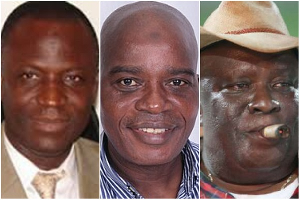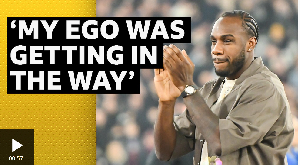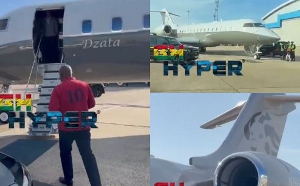The Democratic Republic of Congo, one of the largest countries in Africa and bigger than the size Western Europe, has been in the news for the wrong reasons since its colonial and post-colonial era even though it has the capacity to affect the lives of its citizens and the entire continent of Africa more positively and progressively to paint a picture of a people poised to be one of the most developed globally.
But since the barbaric rule of the Congo Free State under the colonial occupation of King Leopold II of Belgium, which saw an estimated number of 8 million Congolese go through forced labour and systematic exterminations until it gained independence in 1960, millions of deaths have also occurred during the post-colonial era to this day due to extreme exploitation of the rich natural resources of this African country, corruption, ethnic wars planted by imperial forces with local collaborators, despotic regimes while the world looks on helplessly.
Over 5 million lives, particularly women and children, have been destroyed since Rwanda and Uganda with the military support of the United States besieged that country in 1996 and 1998 under Mobutu Sese Seko and Laurent Kabila respectively. This, according to the United Nations, saw one of the deadliest human pandemic since the Second World War in 1945 where violence has been on the extreme with the recruitment of child soldiers, raping of women, starvation and the continuous looting of rich minerals by networked local and foreign agents.
After coming out of two civil wars, today, DRC ongo is on the precipice of a possible outbreak of another war if world leaders especially the African Union shirks in its responsibility of quelling this impending danger by intervening and mediating between the factions involved to at least main the fragile peace that the people have been enjoying over the years.
In April last year, the mutinous act of about 300 soldiers led by Bosco Ntaganda which broke away from the Armed Forces of the Democratic Republic of Congo (FARDC) owning to allegations that President Joseph Kabila had not fulfilled certain conditions of the March 23, 2009 peace deal that was brokered led to the formation of the M23 rebel movement that took over the North Kivu province capital of Goma with the threat of capturing Kinshasa and overthrow the government.
The M23 rebels, deriving its name from the peace accord maintained that the Congolese government failed to properly integrate rebels into the FARDC with improved working conditions and their appointments into key positions in government. They also made demands for the release of political prisoners including opposition leader Etienne Tshisikedi and the dissolving of the electoral commission that conducted the 2011 elections that was fraught with massive irregularities according to observers.
What was most intriguing, however, was that the 17,000 manned United Nations Organisation Stabilisation Mission in DR.Congo (MUNUSCO) which the UN spends over $1 billion annually on stood by and allowed the rebels who are estimated to be over 5,000 marched into Goma with heavy artilleries leaving the Congolese army to retreat. This development is reminiscent of the inaction of the UN peace keeping force in 1961 which led to the assassination of Patrice Lumumba, the country’s first Prime Minister, and allegations of UN’s complicity in his murder has been rife since. UN reports have also cited that some members of MUNUSCO are involved in the sale of weapons to the rebels in exchange for minerals in the region.
The regional block, International Conference on the Great Lakes Region (ICGLR), which DR.Congo is a member quickly held a meeting between the rebels and Kinshasa in Kampala to prevent further repercussions but it came with initial resistance from the latter because of the belief that they (rebels) had no legitimate demands. The M23 eventually backed down on their threat to take over Kinshasa after pressures from the regional block and the West and went back to their main rebel base of Rutshuru, just 40kilometers north of Goma but with the promise of coming back if their demands remain unattended to.
The Ethnic Factor
The Hutus and Tutsis ethnic divide in the region has been the main force behind the continuous reprisal attacks and killings and the instabilities over the years. It would be recalled that when now Rwandan President Paul Kagame invaded Rwanda in 1990 from Uganda, his justification was to free his tribesmen Tutsis from the control of the Hutus under President Juvénal Habyarimana. Kagame, a trained soldier from the US Army Command and Staff College in Leavenworth, Kansas, succeeded in his quest with the support of the US to end the 20-year rule of the Hutu leader.
When the Rwandan leader assumed power in 1994 after the infamous Rwanda genocide which saw the callous extermination of about 800,000 Tutsis and moderate Hutus, it was a case of revenge for him to go after the over 1.5million Hutu refugees whom have ran into Congo for fear of reprisal attacks from the Tutsis having their own President Kagame in charge.
When the first civil war happened in 1996, the Tutsi-controlled regime of Rwanda attacked and killed thousands of Hutus in Congo. But for the swift intervention of forces from Libya, Angola, Zimbabwe, Namibia and Chad, Laurent Kabila’s regime would have been overthrown when the Tutsi-led rebels almost took control of Kinshasa during the second civil war in 1998. The Hutus fought alongside President Kabila to drive the rebels away. He subsequently sacked elements within his government from Tutsi ethnic backgrounds and also Rwandan and Ugandan officials.
It is very remarkable to note that a United Nations report has revealed the complicity of the Rwanda and Ugandan governments in their continuous military and financial support for inhumane activities of the rebels largely dominated by the Tutsi in the Congo over decades. Even though both countries have denied the claims and rejected reports that indicted them, one thing is obvious: The leading actors in these acts of aggression and subversion are Tutsis.
Bosco Ntaganda, the founder of the M23 in Congo who is on the wanted list of the International Criminal Court for using child soldiers, was an officer in the Rwandan Patriotic Army and a Tutsi for that matter. Another UN report cited his hold over rich mineral mines in the east of Congo which shares border with Rwanda.
The Way Forward
The international community, and especially the African Union, must call the perpetrators of this act of dehumanization and war mongering to order. The Kagame regime must be told in the face to stop the continuous exploitation of the mineral wealth of eastern Congo and his continuous support for Tutsi rebel movements in the region in perpetuating his hold over the region.
It has become evident that when leaders of the continental body, AU, met in Addis Ababa some few days ago, various forms of financial and military support and commitments were made to arrest the crisis in Mali where the north of that country is under a threat of terrorist evasion. Little was heard on the looming danger about to occur in eastern Congo and the appropriate steps taken to avoid it. In the name of diplomacy and for whatever reason(s), the wounds of Congo are left to fester. The AU must show same or more commitment to the humanitarian situation in Congo as we are witnessing now in Mali even though belated.
The leadership of the Hutus and Tutsis must also be determined to put the past behind them and realise that they were once a people of one fold in Rwanda despite their ethnic differences. The minority Tutsi regime led government by Paul Kagame must be magnanimous enough to welcome back into Rwanda the Hutus who fled into Congo as refugees to begin a rebuilding and reconciliation process of integrating them into every segment of their society. Their basic human rights and necessities of life must be guaranteed under such an agreement and the African Union must particularly lead in such an arrangement with Presidents Joseph Kabila and Kagame playing crucial roles in that regard. The UN in imposing sanctions and taking major decisions that has the potency to affect the peace of the region must do so in consultation with the ICDLR, the region’s main body which is composed of Tanzania, Sudan, Central African Republic, Democratic Republic of Congo, Zambia , Kenya, Rwanda, Burundi, Uganda, Angola and Republic of Congo. Recent frustrations expressed by some leaders who brokered an agreement with the rebels in Kampala which saw them laying down their arms at the back of imposition of sanctions by the UN on key figures of the M23 is a source of worry to the peace process. The global body must not be seen as undermining the efforts of the peace process and should do broader consultations to cure that negative perception.
The millions of lives especially women and children that have gone down the drain; the several 100,000s that have been displaced and gone through starvation; the rapes and continuous violence with the employment of child soldiers; and the constant fear of reprisal attacks and hopelessness of the people clothed in abject poverty in the name of ethnic clashes and the exploitation of mineral wealth must give way.
DR.Congo is home to gold, cobalt, diamond, copper and other precious minerals and natural resources. It has about 75% of the world’s coltan which is mainly used in the manufacturing of electronic products. It is therefore ironic that in the release of the 2011 United Nations Development Programme’s Human Development Index rankings of countries’ national achievement in health, education and income, Congo was ranked last out the 187 countries surveyed. Poverty is still endemic in that country and it is also just a reflection of what is happening in other African countries
“The Republic of the Congo has been proclaimed and our beloved country's future is now in the hands of its own people.
Brothers, let us commence together a new struggle, a sublime struggle that will lead our country to peace, prosperity and greatness.
Together we shall establish social justice and ensure for every man a fair remuneration for his labour.
We shall show the world what the black man can do when working in liberty, and we shall make the Congo the pride of Africa.
We shall see to it that the lands of our native country truly benefit its children.
We shall revise all the old laws and make them into new ones that will be just and noble.
We shall stop the persecution of free thought. We shall see to it that all citizens enjoy to the fullest extent the basic freedoms provided for by the Declaration of Human Rights.
We shall eradicate all discrimination, whatever its origin, and we shall ensure for everyone a station in life befitting his human dignity and worthy of his labour and his loyalty to the country.
We shall institute in the country a peace resting not on guns and bayonets but on concord and goodwill.
I ask you all to sink your tribal quarrels: they weaken us and may cause us to be despised abroad.
I ask you all not to shrink from any sacrifice for the sake of ensuring the success of our grand undertaking.
The Congo's independence is a decisive step towards the liberation of the whole African continent”
(Excerpts of the speech delivered by Congo’s first President Patrice Emery Lumumba on Independence Day on June 30, 1960)
This was the Congo its founder Patrice Lumumba dreamed of. The people of the Congo must remind themselves of these very words that hold their path to prosperity, peace and tranquility. The forces of darkness that take hold of this mighty African country would soon see the light of liberation and freedom breathing over it where its citizens would live as brothers and sisters and focused on the many things that unite than divide them. Congo must work again!!!
Opinions of Friday, 15 February 2013
Columnist: Adzah Dowokpor, Romeo














